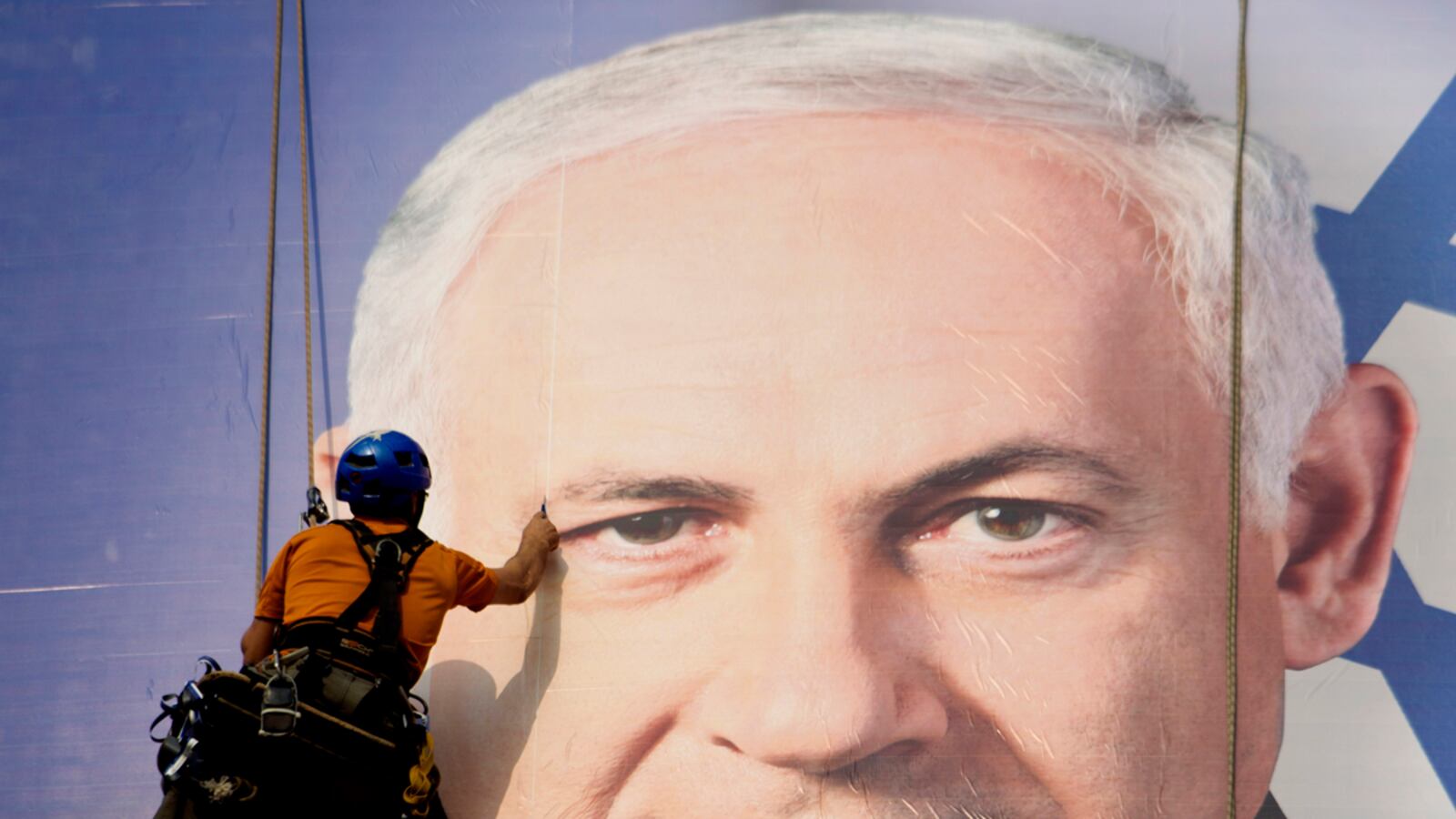In most elections, in most countries, the majority of the people are in the political center. This is where the votes are and where aspirant politicians have to aim much of their agenda. Case in point: the recent U.S. elections. An incumbent President, presiding over a faltering economy, won re-election in large part because his opponent was seen as being too far out on the right on a number of issues.
So, too, in Israel. Contrary to reports describing a move to the right by the Israeli electorate, Benjamin Netanyahu is very likely to be re-elected Prime Minister primarily because, on the major fault line in Israeli politics—the question of the conflict with the Palestinians—he has successfully tapped into the discernible middle ground.

In Israel today, a clear majority of the population believes two truths to be self-evident: First, that peace will ultimately be achieved only through the concession of most of the West Bank to the Palestinians; and second, that the Palestinians are not reliable peace partners and would likely turn the West Bank into a launching pad for rockets, à la Gaza.
That old truism that hawks are the most capable of making peace carries a lot of weight in middle Israel. Peacemakers don't have to be right-wing, but they have to be trusted to see things through the prism of Israel's security concerns. Yitzhak Rabin is a hero on the Israeli left (and a villain for much of the right) but he was no Peace Now naïf. He was a hard-nosed realist with impeccable military credentials: Palmach hero, IDF Chief-Of-Staff and Defense Minister. Ehud Barak was elected Prime Minister with a clear mandate to pursue peace talks with Yasser Arafat not because he was from the left-leaning Labor Party, but because he was the most decorated soldier in Israel's history.
Netanyahu does not have Rabin's or Barak's military background. However, his constant wariness about Palestinian intentions (which so clearly infuriates President Obama and other international interlocutors) is, for many Israelis, a source of reassurance. While he has not publicly backtracked on his support, in principle, for a Palestinian state alongside Israel, he frequently refers to the danger of having an Iran-backed Hamas in charge of the West Bank, from which the entire country is in missile range.
Now, an argument could be made that a discerning voter, contemplating the West Bank/Palestinian question, would most likely not vote for the Likud. If our voter is in favor of territorial withdrawal, there are five other Zionist parties running on a clear, unequivocal position in favor of a negotiated two-state deal. And if our voter wants to keep “Greater Israel,” she or he can vote for the unabashedly pro-settlement Jewish Home party with its dynamic new leader, Naftali Bennett.
Of course, in Israel as in every democracy, the vast majority of the electorate does not vote based on an intellectually rigorous analysis of parties' positions, but on more visceral instincts. This is why political parties in Israel, the U.S. and elsewhere spend a small fortune on television advertising and slogan-filled billboards rather than simply mailing every voter a copy of their platforms.
But there's another reason why Netanyahu's studied ambiguity has so many takers: Simply put, the situation is not so unambiguous.
Take the very recent example of Operation Pillar of Defense against Hamas in Gaza. When the air raid siren sounded in Jerusalem and Tel Aviv for the first time in twenty years, there were many left-leaning residents of those cities—this writer among them—who scurried to their bomb shelters wondering if this would become a regular occurrence following an Israeli withdrawal from the West Bank.
We should also be honest and not ignore the indications that even so-called “moderate” figures in the Palestinian leadership remain attached to the same rejectionist motifs as their terror-supporting predecessors. Certainly no one who heard Abbas's propaganda-strewn speech to the U.N. General Assembly in November, depicting Israel as a brutal ethnic cleanser, could feel confident that an agreement with him would actually lead to a lasting peace.
As someone who believes in the absolute necessity of a Jewish and democratic State of Israel, I am very concerned about the growing reactionary forces on the right of Israeli politics—typified by the Likud's apparent abandonment of its liberal traditions. And I'm not sure that a third term of Netanyahu as Prime Minister won't leave Israel further down the path to a one-state national suicide.
But the most recent poll shows a majority remains supportive of a two-state solution. Even 57 percent of Likud voters are in favor! Yes, Israelis are wary of false dawns and realistic about our neighbors, but we've not yet given up on the dream of peace.





